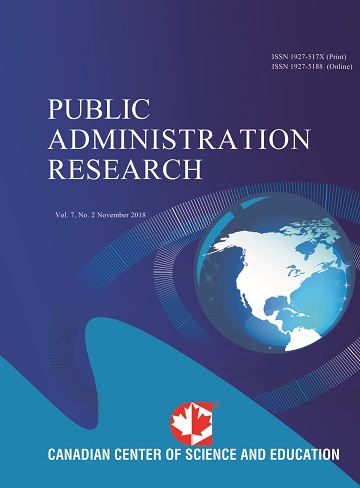The Influence of Talent Management on Performance of Employee in Public Sector Institutions of the UAE
- Mahmoud Kaleem
Abstract
Talent management is the discipline of using strategic human capital planning to improve the value of business and induce it for enterprises organizations to achieve their objectives. It refers the organization’s ability to recruit, reward, organize, and retain most talented employees available in job market. In the modern era it has become very important and necessary skill for the workforce to acquire the one’s good skills, cognitive abilities, knowledge, and potential to do well for the business strategy to function more appropriately. Talent management is the training strategy for the employees that are set within an organization platform. The organizations where the most productive employees can pick and choose the tasks according to their will and capability are found more beneficial and productive for the organizations. In the adverse economic circumstances, companies are trying to cut their expenses so the talent management system is the means to optimize the performance of each employee.
The basic aim of this study is to explore the influences of talent management strategiesto determine the employees’ performancein selected public sector organizations of UAE. The core function of this study examines, how talent management practicescan enhance the employee’s satisfaction and productive performance, instead of being process of hiring, reinforcing and evaluating the aptitude. Efforts have been made to retain, attract, develop, and reward employees. This study puts forward valid descriptive hypothesesdata, based on a survey collected through the employees of the nationalorganizationsofthe UAE. A pre-plannedsurvey has been used on a sample of more than two hundred (200) employees working in different organizations for the collection of primary data. This research work is steered by the following explorative questions:At what level does talent acquisition affectsthe performance of employee, at what level of extensive, does the impact of talent development affects the employee performance, to what extent does the talent retention enhance the performance of the employees, to what extent does the talent management enhance the performance of the employees.
The stratified methodology for data collection is adoptedfor the selection the sample size of 200plaintiffs. A well-organized structuredand to the pointquestionnaire is utilized for the collection of raw data. The collected raw data is analyzed for both of inferential (correlation analysis) and descriptive (percentages and frequencies) statistics. Tables and figures are used to represent the data. The finding indicates that talent management practices have direct impact on employee’s motivation, creativity, satisfaction and employee competency. The study recommends that there should be healthy and stress free working environment, career progression opportunity, regular training, welcome employees’ innovative idea and transparent proper promotion policy for the management of talent in the organization.
- Full Text:
 PDF
PDF
- DOI:10.5539/par.v8n2p8
Journal Metrics
h-index (2017): 7
i10-index (2017): 6
h5-index (2017): 7
h5-median (2017): 13
Index
- COPAC
- CrossRef
- DTU Library
- EBSCOhost
- EuroPub Database
- Excellence in Research for Australia (ERA)
- Genamics JournalSeek
- Ghent University Library
- Google Scholar
- Harvard Library
- Infotrieve
- Jisc Library Hub Discover
- LOCKSS
- Mir@bel
- Norwegian Centre for Research Data (NSD)
- Open J-Gate
- PKP Open Archives Harvester
- Publons
- ROAD
- Scilit
- SHERPA/RoMEO
- Stanford Libraries
- Ulrich's
- UniCat
- Universe Digital Library
- UoS Library
- WorldCat
Contact
- Gabriel TaiEditorial Assistant
- par@ccsenet.org
